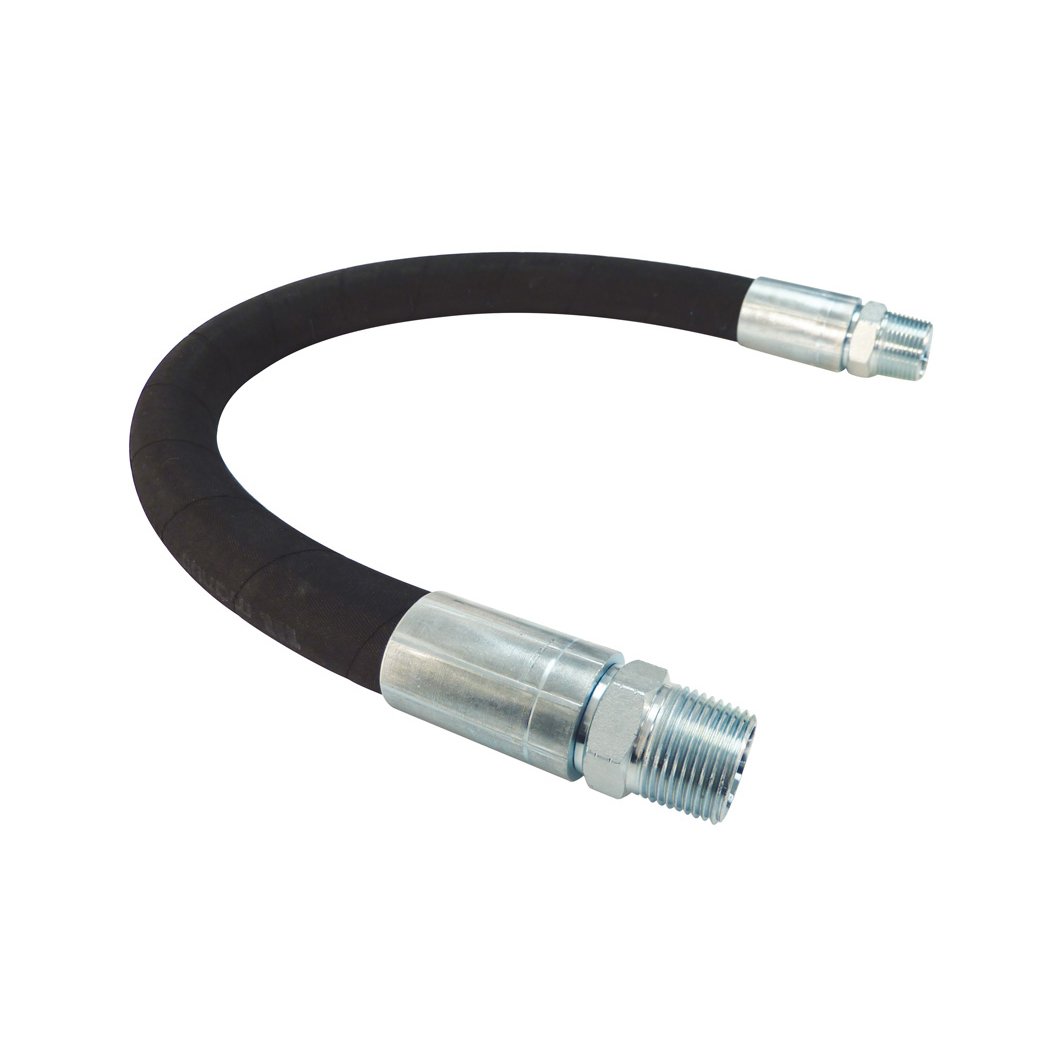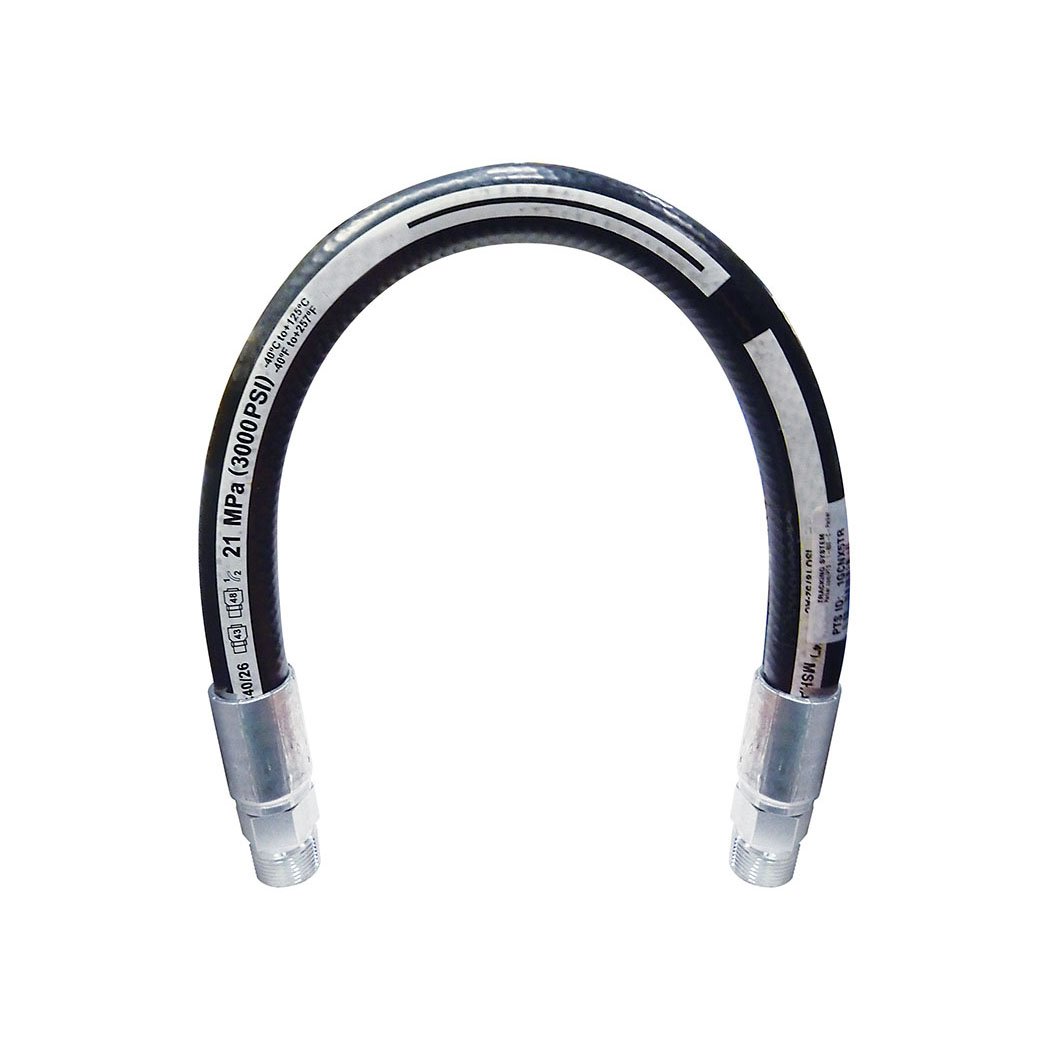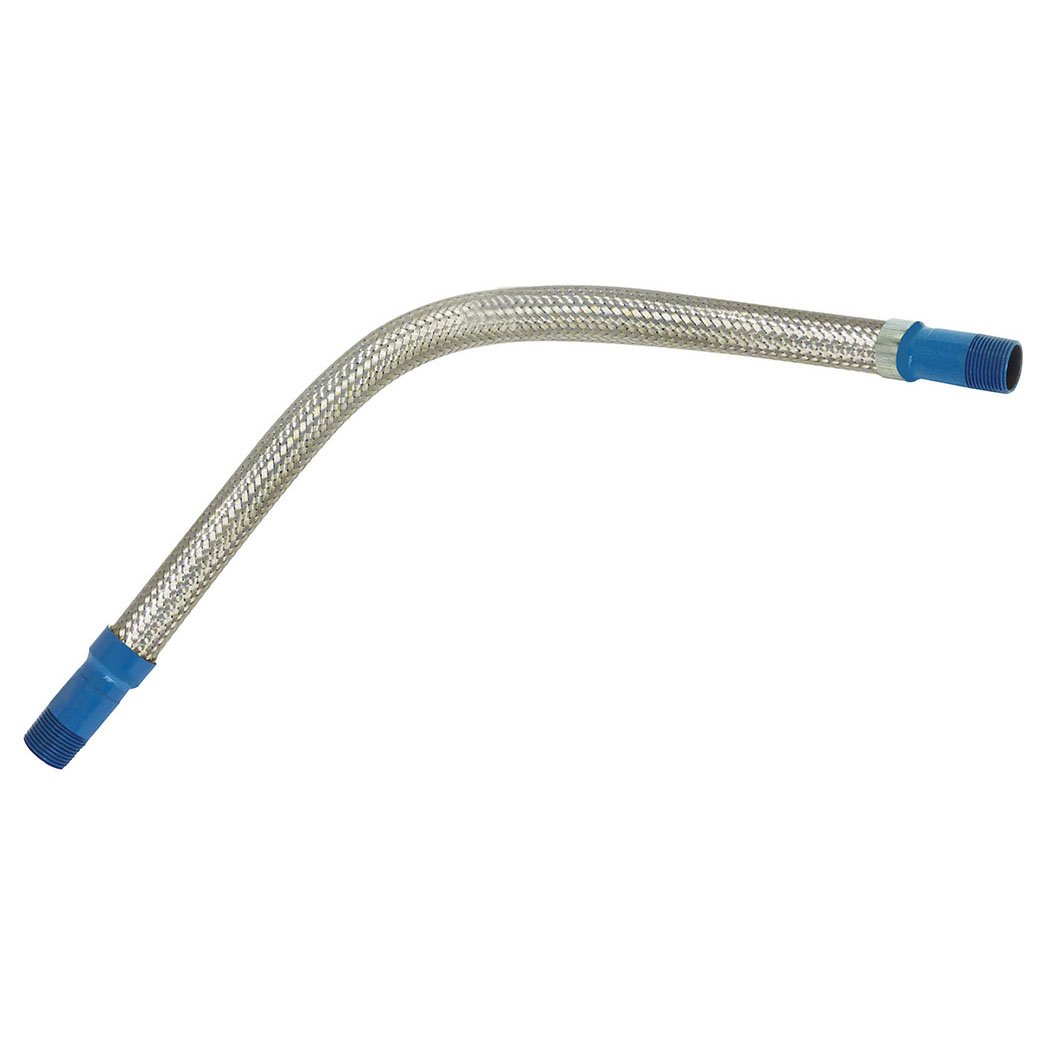Tuyaux de connexion antivibrations

- …
Guide d'achat des tuyaux antivibrations pour l'air comprimé
Les tuyaux anti-vibration sont conçus pour absorber les vibrations et réduire le bruit et la chaleur provenant du compresseur, ce qui prolonge la durée de vie de l'équipement et garantit un environnement de travail plus sûr. Ces tuyaux sont particulièrement importants lors de l'utilisation de compresseurs à piston ou à mouvement alternatif.
Types de tuyaux antivibrations
Topring vend deux types de tuyaux antivibrations : en caoutchouc synthétique et en acier inoxydable.
Les tuyaux antivibratoires en caoutchouc synthétique sont polyvalents et largement utilisés en raison de leur durabilité, de leur flexibilité et de leur résistance à diverses conditions environnementales.
Ils conviennent aux applications où la flexibilité et la rentabilité sont essentielles.
Les tuyaux antivibratoires en acier inoxydable sont connus pour leur solidité, leur tolérance aux hautes pressions et leur résistance à la corrosion et aux températures extrêmes.
Ils sont préférés pour les applications exigeant durabilité et fiabilité dans des conditions difficiles.
Éléments à prendre en compte lors de l'achat de tuyaux antivibrations
Conditions de fonctionnement
Plage de température : Pour éviter la dégradation du matériau, choisissez un tuyau qui peut fonctionner dans la plage de température de votre application.
Pression nominale : Assurez-vous que la pression nominale du tuyau est égale ou supérieure à la pression de fonctionnement maximale de votre système d'air comprimé.
Flexibilité et installation
Tenez compte de la flexibilité et de la facilité d'installation du tuyau pour vous assurer qu'il peut être facilement intégré dans votre installation existante.
Sécurité et conformité
Vérifiez les certifications et la conformité aux normes industrielles pour vous assurer que le tuyau répond aux exigences de sécurité et de performance.
Avantages des tuyaux anti-vibration
Réduction des vibrations : En absorbant les vibrations, ces tuyaux évitent les dommages potentiels aux équipements et minimisent les niveaux de bruit, créant ainsi un environnement de travail plus sûr et plus confortable.
Protection de l'équipement : Ils protègent les composants et les connexions sensibles de l'usure et de la fatigue causées par les vibrations continues, prolongeant ainsi la durée de vie des machines.
Amélioration de la sécurité : La réduction des vibrations contribue à rendre les conditions de travail plus sûres en réduisant le risque de panne ou de dysfonctionnement de l'équipement dû à des secousses excessives.
Amélioration des performances : Le maintien d'un fonctionnement stable et sans vibrations garantit des performances constantes des systèmes d'air comprimé, ce qui se traduit par une augmentation de la productivité et de l'efficacité.
Pour choisir le tuyau antivibratoire approprié à votre système d'air comprimé, il faut comprendre les avantages et les applications propres à chaque type de tuyau. En tenant compte des facteurs décrits dans ce guide, vous pourrez prendre une décision éclairée qui améliorera les performances et la longévité de votre système d'air comprimé.




